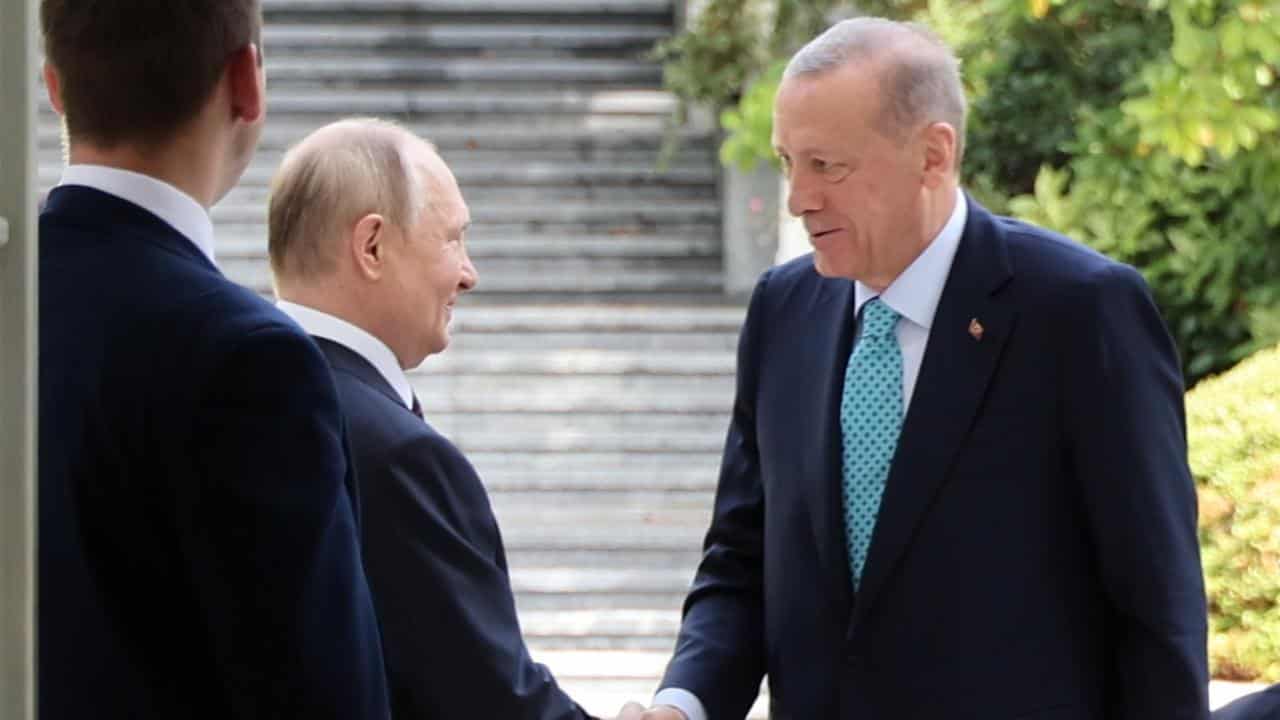
President Vladimir Putin has told Turkey's Tayyip Erdogan that Russia is open to discussions about the Black Sea grain deal, an agreement that helped get Ukraine's grain to market and thus ease a global food crisis.
Russia quit the deal in July - a year after it was brokered by the United Nations and Turkey - complaining that its own food and fertiliser exports faced obstacles and that not enough Ukrainian grain was going to countries in need.
Erdogan, who previously played a significant role in convincing Putin to stick with the deal, and the United Nations are trying to get Putin to return to the deal.
Speaking at the opening of their meeting in the Black Sea resort of Sochi, Putin told Erdogan that he hoped they would wrap up talks on a natural gas hub in Turkey and said they would also discuss the grain deal.
"I know that you intend to raise the issue of the grain deal," Putin told Erdogan.
"We are open to negotiations on this question."
Erdogan said the world was waiting for news on the grain corridor issue.
"Everyone is waiting for what will come out of our meeting today," he said.
"I believe that the message at the press conference after the meeting will be an important step for the whole world, especially for African countries."
The deal was aimed at getting grain from Ukraine to world markets through the Black Sea and easing a global food crisis that the United Nations said had been worsened by Russia's full-scale invasion of Ukraine in February last year.
Russia and Ukraine are two of the world's key agricultural producers, and major players in the wheat, barley, maize, rapeseed, rapeseed oil, sunflower seed and sunflower oil markets.
Ahead of the Erdogan talks, Ukrainian officials said Russia launched an overnight air attack on one of Ukraine's major grain exporting ports.
Romania denied a Ukrainian statement that Russian drones fell and detonated on the NATO member's territory.
Putin has said Russia could return to the grain deal if the West fulfils a separate memorandum agreed with the United Nations at the same time to facilitate Russian food and fertiliser exports.
While Russian exports of food and fertiliser are not subject to Western sanctions imposed after Russia's invasion of Ukraine, Moscow has said restrictions on payments, logistics and insurance have hindered shipments.
UN Secretary-General António Guterres said on Thursday that he had sent Russian Foreign Minister Sergei Lavrov "a set of concrete proposals" aimed at reviving the deal.
One of Moscow's main demands is for the Russian Agricultural Bank to be reconnected to the SWIFT international payments system. The EU cut it off in June 2022 as part of sweeping sanctions imposed in response to the invasion.









